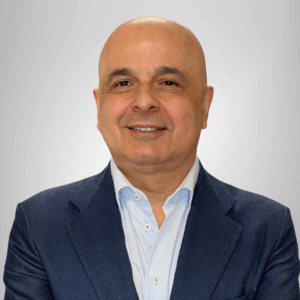Beyond 50: Insights Into Migraine That Ages With Us
You are currently watching a preview of this interview. Unlock the full version by upgrading to an Access Pass bundle! Get FREE access to 8 expert interviews from Day 1 and Day 2 when you register today!
Key Questions
- How does migraine disease progress in people as they get older?
- What are the problems with research on people over 60 with migraine?
- How does research on migraine discriminate against older patients?
- Is migraine with aura more common in older patients?
- How does chronic migraine change over time?
- How do comorbidities complicate migraine treatment for people over 60?
- How does menopause affect migraine?
- Where can we find information on consensus treatments for migraine for people over 60?
- Can cognitive problems in older patients be related to their migraine disease?
- Can cognitive performance in older patients be improved by getting migraine under control?
- For individuals experiencing current or past chronic migraine, what proactive measures can be taken to minimize the impact of migraine as we age?
Interview Notes
- Human Migraine Research Unit
- Danish Headache Center
- Study: “Migraine in older adults”
- Study: “Functional connectivity and cognitive impairment in migraine with and without aura”
- X (Twitter): @MessoudAshina
Please note: The Migraine World Summit’s aim is to bring you a variety of perspectives and expertise, independent of bias or judgment. Alternative theories presented in this video have not been medically reviewed. Views expressed in this interview do not necessarily represent the views of the Migraine World Summit. Please always consult your health care professional and do your own research before making changes to your treatment plan.

Messoud Ashina, MD, PhD, DMSc
Professor of Neurology | Centre Leader
Danish Headache Center | Center for Discoveries in Migraine
Messoud Ashina, MD, is a professor of neurology in the faculty of health and medical sciences, University of Copenhagen, Denmark. Professor Ashina received his doctor of medicine degree at the Azerbaijan Medical University. He completed his residency in neurology at the University of Copenhagen. Dr. Ashina received his PhD and DMSc degrees at the University of Copenhagen.
He is director of the Center for Discoveries in Migraine at the Danish Headache Center and Department of Neurology, Rigshospitalet Glostrup.
Professor Ashina has been actively involved in headache research since 1995. His research interests include experimental migraine and cluster headache models, neuroimaging, novel antimigraine drug targets, the mechanism of migraine, and the action of antimigraine medications. He has authored over 600 papers, abstracts, and book chapters on the topic of headache, including migraine and cluster headache.
Professor Ashina serves as associate editor of two journals: Brain, and The Journal of Headache and Pain. He is also past president of the International Headache Society.
Interviews from Messoud Ashina, MD, PhD, DMSc
Beyond 50: Insights Into Migraine That Ages With Us
Migraine & Headache Research Frontiers
10 Steps to Migraine Management Your Doctor Should be Taking

Unlock the full 2026 Summit experience:
- Complete, unedited expert interviews
- Additional clinical detail beyond the 30-minute live sessions
- Revisit any 2026 session anytime
- Transcripts and audio downloads included
Related Talks for: Day 6 (2024)
How Migraine & Chronic Fatigue Syndrome (ME/CFS) Are Connected
James Baraniuk, MD
Tension Headache or Migraine? Differences and Misdiagnoses
Rebecca C. Burch, MD, FAHS
How To Manage Migraine Stigma at Work
Olivia Begasse de Dhaem, MD, FAHS
The Global Healthy Living Foundation is a 501(c)(3) nonprofit organization whose mission is to improve the quality of life for people with chronic illnesses (such as arthritis, osteoporosis, migraine, psoriasis, asthma, alopecia, inflammatory bowel disease, and cardiovascular disease) by advocating for improved access to health care at the community, state, and federal levels, and amplifying education and awareness efforts within its social media framework.
Migraine doesn't have to derail your career. Nearly every workplace in the country is impacted by migraine disease through absenteeism and presenteeism. Despite the prevalence of the disease, there is a lack of education and awareness around it. In the workplace, this often leads to unintended stigma and bias against employees living with migraine disease. Visit our website to learn more about programs available for both employees and employers.

Looking for a topic you can't find in this year's talks? Chances are, it's in our Interview Library with over 200 interviews. Search on keywords and synonyms for the best results. You can still get lifetime access to past talks.







